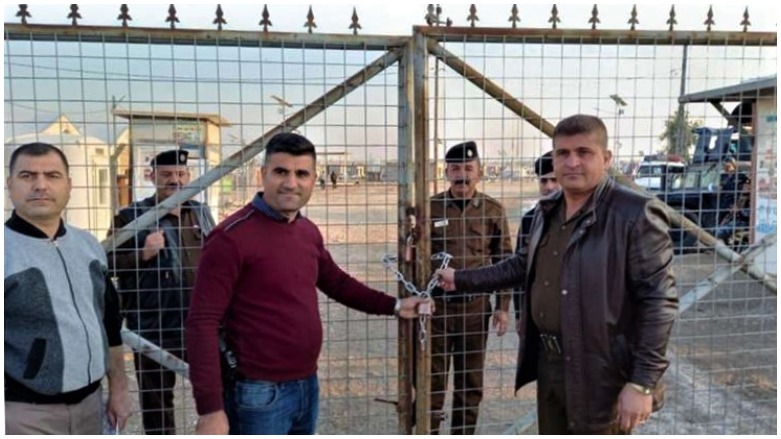UN ‘gravely concerned’ as Iraq closes camps before displaced can safely return home
The United Nations (UN) warned that it was “gravely concerned” about the fate of large numbers of the millions who were displaced since the Islamic State's rise in the country in 2014 as Baghdad continues to close camps where they've been living for years, the latest located in the disputed province of Kirkuk.

ERBIL (Kurdistan 24) – The United Nations (UN) warned that it was “gravely concerned” about the fate of large numbers of the millions who were displaced since the Islamic State's rise in the country in 2014 as Baghdad continues to close camps where they've been living for years, the latest located in the disputed province of Kirkuk.
The Iraqi Ministry of Migration and Displacement announced the closure of the Laylan camp, previously home to around 7,000 internally displaced persons (IDPs) although many observers warn that their hometowns are not safe to return to and often are almost completely lacking in public services and infrastructure.
With the announcement, Iraq said that all camps located in Kirkuk province had been shuttered, just three days after it said the same of Diyala. The closings have come quickly since the government’s "emergency plan" was implemented, which aims to "close the file across the country before the end of the year as it prepares for general elections in mid-2021.
Read More: Iraq accelerating return of displaced in plan to 'close the file' in 2020
The UN is "gravely concerned about the thousands of civilians who have been moved from camps of IDPs in the last six weeks and have not yet found new homes," the UN Resident and Humanitarian Coordinator, Irena Vojackova-Sollorano, said in a statement.
"The Government of Iraq has closed or consolidated 11 such camps and reclassified two as informal sites since mid-October, affecting more than 27,000 people. An estimated 78 percent of those are women and children who were already vulnerable," the statement added.
Sollorano voiced her concern regarding the fate of the IDPs, saying "about 30 percent of those returnees do not have safe or dignified housing and remain highly vulnerable. The other one-third of people affected have been unable to return to their places of origin."
Sollorano pointed out that the reasons many haven't been able to return home include “social tensions and insecurity, the presence of unexploded ordnances and explosive remnants of war,” adding that the lack of civil documentation, housing, services, cash assistance, and livelihood opportunities are also significant factors.
She added that, although the UN shares Iraq’s ultimate goal "to end the displacement crisis in Iraq," the return of all IDPs "needs to be voluntary, safe, dignified, and informed, with conditions in place in advance in their areas of origin to enable reintegration and ensure sustainable solutions."
Editing by John J. Catherine